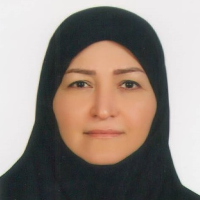Explanation of indicators for improving the quality of evaluating learners' abilities in technical and professional higher education With emphasis on skill-oriented and employability
The present study aimed to Explaining the indicators of improving the quality of learners' in vocational and technical higher education by employing the employment approach. The research was done with an applied purpose and using an exploratory mixed methods research approach. The statistical population of the qualitative section consisted of curriculum experts, faculty members of technical and vocational universities and employers in Iran, among whom 18 participants were selected via a purposive sampling method. The statistical population of the research in the quantitative part included 571 teachers of Shariati Technical and Vocational University of Tehran in 2019, and 230 of them were selected by stratified sampling method. Research data were collected through the semi-structured interviewing technique and a researcher-made questionnaire. Content validity was used to determine the validity of the interview questions and the questionnaire and Cronbach's alpha coefficient According to the research findings in the qualitative part, in order for the evaluators to be able to evaluate the capabilities of the learners in the most favorable way, it is necessary to perform performance tests, provide periodical feedback, emphasize practical work and group projects, surveys Take appropriate and relevant factors of the internship environment for evaluation, evaluation based on all educational goals, continuous evaluation and evaluation by peer groups. Also, the results in the quantitative section revealed; The explained methods are effective in improving the evaluation quality
-
Exploring the Concept of Solitude as a Common Theme in Rumi's Poetry and Architecture (Elements and Decorations)
Mohammad Ibrahim Mazhary *, , Sahar Borhanifar
Paykareh, -
Examining the Components of Architectural Concept Formationin Teaching Architectural Design With A Background-Based Approach
Amir Noorimokaram, Behrooz Janipour *,
Bagh-e Nazar,


